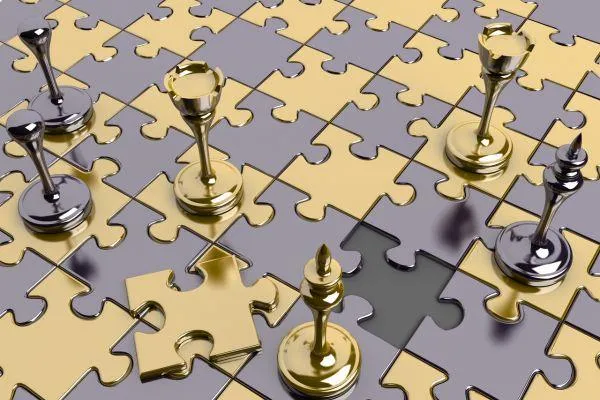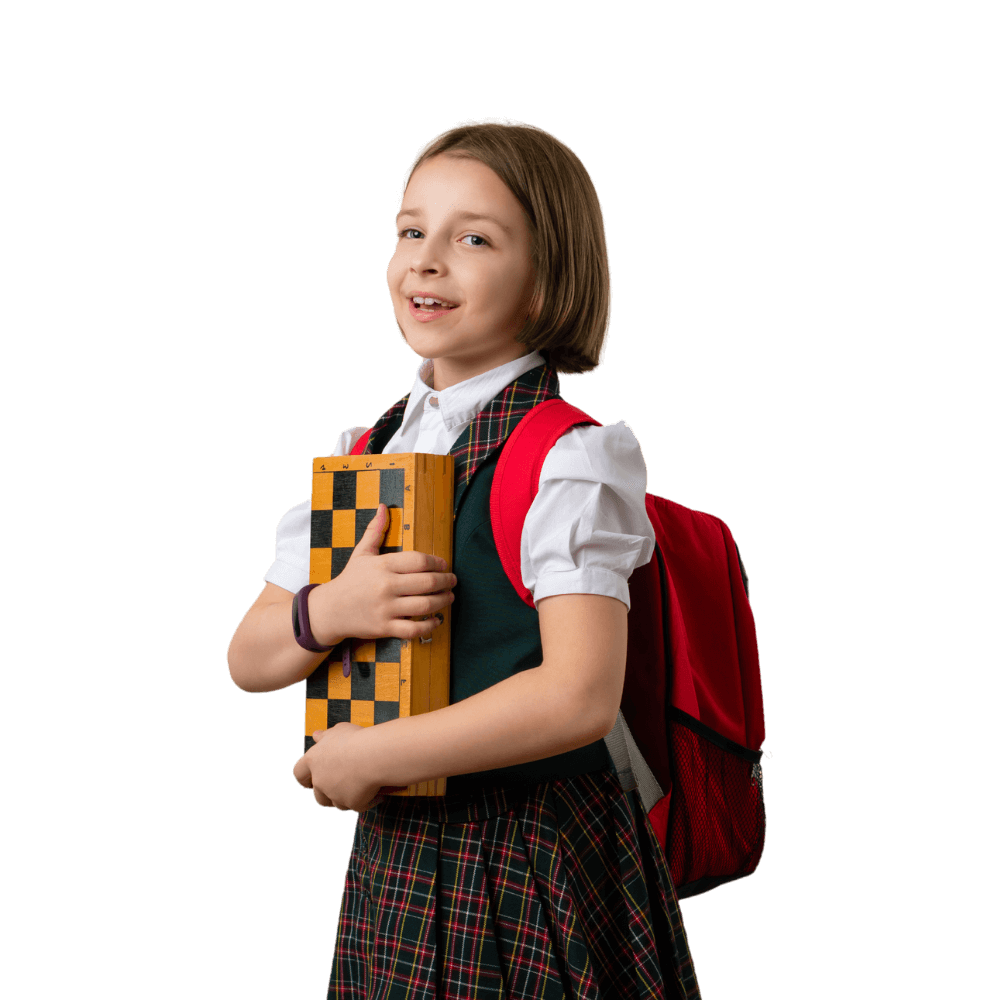
Chess Puzzles for Kids: A Fun Way to Improve Critical Thinking Skills
Chess puzzles are more than just a fun activity—they are a fantastic way for children to sharpen their critical thinking, problem-solving, and strategic skills. For young players, solving chess puzzles for kids helps develop essential cognitive abilities while fostering a love for the game. In this article, we’ll dive into the benefits of chess puzzles, explain how they work, and highlight how CHESS KLUB incorporates them into its lessons to help kids improve their chess skills.
What Are Chess Puzzles?
A chess puzzle is a position on the board where a player is tasked with finding the best move. The puzzles vary in difficulty, ranging from simple one-move checkmates to more complex multi-move combinations that require deep calculation. The goal is to train the brain to recognize patterns, spot threats, and calculate the best sequences of moves under time constraints.
Chess puzzles for kids are often designed to focus on foundational tactics such as forks, pins, skewers, and discovered attacks. These puzzles are crafted to be engaging and fun, allowing children to improve their chess skills while enjoying the challenge.
Why Chess Puzzles Are Important for Children
Chess puzzles are a vital part of any young chess player’s development. Here’s why they are so effective in boosting children’s cognitive abilities:
1. Enhancing Problem-Solving Skills
Every chess puzzle presents a problem that requires solving. Whether it’s finding a checkmate in two moves or navigating a tricky endgame position, children learn to analyze the situation and come up with a solution. This process mirrors real-life problem-solving, teaching kids how to approach challenges with patience, logic, and creativity.
By repeatedly solving puzzles, children improve their ability to break down complex problems into manageable steps. This skill can be applied beyond the chessboard, helping kids become better problem-solvers in their daily lives and academics.
2. Improving Focus and Concentration
Chess puzzles demand attention to detail. Children must focus on the entire board, consider both their own pieces and their opponent’s, and identify the best course of action. This level of concentration is essential for success in chess and can carry over into other areas, such as schoolwork and extracurricular activities.
The process of solving puzzles also teaches children to stay calm under pressure. In a timed chess puzzle, kids learn to balance speed with accuracy, a skill that will benefit them in competitive chess and in academic settings like test-taking.
3. Boosting Pattern Recognition
Chess is a game of patterns, and chess puzzles are designed to help children recognize these patterns quickly. By solving puzzles that focus on recurring tactical themes (such as forks, pins, and discovered attacks), children develop the ability to spot winning moves more easily during actual games.
The faster kids can recognize these patterns, the better they become at making the right decisions. This skill becomes crucial in competitive chess, where time is often limited and quick thinking is necessary.
4. Encouraging Strategic Thinking
Chess puzzles train children to think ahead. Instead of just responding to their opponent’s last move, young players are encouraged to think several moves in advance. This type of forward planning improves their strategic thinking, allowing them to visualize potential threats, opportunities, and outcomes.
Learning to think strategically at a young age helps children become better decision-makers. They begin to understand that every action has consequences, which is a valuable lesson both on and off the chessboard.
5. Developing Resilience and Patience
Not every puzzle is easy to solve, and this is a good thing! Some puzzles will challenge kids, forcing them to persevere and work through frustration. In a world where instant gratification is common, chess puzzles teach children the importance of patience and persistence.
Over time, kids develop resilience by tackling increasingly difficult puzzles. The sense of accomplishment they feel after solving a tough puzzle helps build confidence and teaches them the value of hard work and determination.
Types of Chess Puzzles for Kids
Chess puzzles come in various forms, each designed to develop different aspects of a child’s chess ability. Here are some popular types of chess puzzles for kids that can be found in books, apps, and online resources:
1. Checkmate Puzzles
These puzzles challenge children to find a checkmate in a certain number of moves, such as “mate in one” or “mate in two.” Checkmate puzzles are an excellent way for beginners to understand the ultimate goal of chess and practice finishing a game.
2. Tactical Puzzles
Tactical puzzles focus on key chess tactics like forks, pins, skewers, and discovered attacks. These puzzles train kids to recognize opportunities to gain material or create threats against their opponent. They are essential for improving a child’s ability to execute tactical ideas during a game.
3. Endgame Puzzles
Endgame puzzles are designed to help children understand how to navigate the final stages of a chess game. These puzzles focus on techniques like pawn promotion, opposition, and basic checkmates (such as king and rook vs. king). Endgame puzzles teach kids how to convert a winning position into a victory.
4. Defense and Counterplay Puzzles
These puzzles focus on defensive tactics, helping children learn how to escape dangerous situations or turn the tables on their opponents. By solving defense puzzles, kids gain confidence in handling difficult positions and avoid making careless mistakes.
5. Positional Puzzles
Positional puzzles are more advanced and challenge kids to improve their position without necessarily winning material right away. These puzzles teach children the importance of piece activity, control of the center, and creating long-term advantages in a game.
How CHESS KLUB Incorporates Chess Puzzles for Kids
At CHESS KLUB, chess puzzles play a significant role in the development of young players. Through a combination of lessons, interactive puzzles, and personalized coaching, CHESS KLUB ensures that kids have the tools they need to improve their chess skills.
Here’s how CHESS KLUB integrates chess puzzles into its training programs for children:
1. Puzzle-Based Learning in Classes
In CHESS KLUB’s regular chess classes for kids, puzzles are a core part of the curriculum. Coaches present puzzles that are tailored to the students' skill levels, encouraging them to think critically and solve problems on their own. By incorporating puzzles into lessons, kids learn to apply tactics in real games.
2. Puzzle Time During Tournaments
At CHESS KLUB’s tournaments, participants are often given puzzle sheets to work on between rounds. This helps young players stay mentally engaged and sharpens their tactical awareness, even when they’re not actively competing.
3. Chess Puzzle Challenges
CHESS KLUB regularly hosts chess puzzle challenges, where children compete to solve a series of puzzles within a set time. These challenges are a fun and engaging way to foster friendly competition while improving critical thinking and problem-solving skills.
4. Digital Puzzle Tools
In addition to in-person instruction, CHESS KLUB offers access to online chess puzzle platforms, allowing students to practice at home. These digital tools provide an endless supply of puzzles, enabling kids to continue their learning outside of the classroom.
Where to Find Chess Puzzles for Kids
Parents looking to provide their children with chess puzzles at home have several great resources to choose from. Here are a few options for finding high-quality puzzles:
Chess Books for Kids: Many beginner chess books, such as Chess Tactics for Kids by Murray Chandler, include collections of puzzles that are easy to follow and fun for children to solve.
Online Chess Platforms: Websites like Chess.com and Lichess offer free chess puzzles for all levels, including puzzles specifically designed for young players.
Chess Puzzle Apps: There are several chess puzzle apps available for download on smartphones and tablets. These apps offer daily puzzles, puzzle rush competitions, and personalized puzzle sets based on the user’s skill level.
Conclusion
Chess puzzles for kids are a fun and effective way to help young players improve their critical thinking, concentration, and problem-solving skills. Whether through checkmate puzzles, tactical exercises, or defense challenges, kids can sharpen their chess abilities while enjoying the process of learning. By incorporating puzzles into its programs, CHESS KLUB ensures that children have the tools they need to succeed both on and off the chessboard. With the right approach, solving chess puzzles becomes not only an educational experience but also a fun and rewarding activity for kids of all ages.


